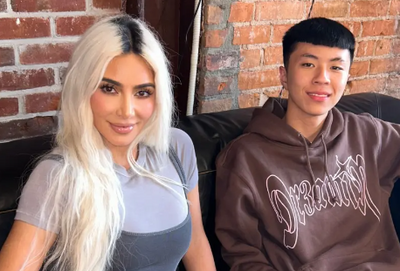《TAIPEI TIMES 焦點》 Reporter’s Notebook: Deciphering the rumors on Taiwan-US-China ties
By Nadia Tsao / Staff reporter
A succession of conflicting rumors in Washington — ranging from the signing of a fourth US-China communique when US President Donald Trump and Chinese President Xi Jinping (習近平) meet next month to a new round of massive arms sales to Taiwan — elicited shock and confusion, leaving Taiwanese wondering what the Trump administration is up to.
The specter of a fourth communique has haunted Taiwan since former president Chiang Ching-kuo (蔣經國) was in power. A critical component of those worries is that the Three Joint Communiques have not resolved the issue of Taiwan’s uncertain international status.
In practice, the US’ Taiwan Relations Act allows Washington to acknowledge the reality of Taiwan as a political entity without the need to establish diplomatic relations, which has enabled the growth of substantive economic, security and defense relations between the two nations.
The increasing divergence between Beijing’s “one China principle” and Washington’s “one China policy” has resulted in China blockading Taiwan each time a new US president is elected.
During the Chinese Nationalist Party’s (KMT) authoritarian regime, the concern in Taipei was that the US might align itself with the “one China principle.” Today, in democratic Taiwan, Beijing is wary of Washington acknowledging “one China, one Taiwan.”
The rumors of a fourth communique have arisen due to the Trump administration’s opacity in regard to its China policy, as well as internecine factional struggles.
It is believed that a certain group in Washington has been working toward collaborating with Beijing to take control of the US-China policy narrative. This group previously showed its influence during the administration of former US president Ronald Reagan.
The rumors of a fourth commuique were produced in circumstances similar to those that created speculation under Reagan.
During the US presidential election campaign, Trump used strident rhetoric against China and many members of his Cabinet are known China hawks. After his election, Trump answered a congratulatory telephone call from President Tsai Ing-wen (蔡英文).
However, US Secretary of State Rex Tillerson’s recent comments to the US Congress — taken as an indicator of the Trump administration’s direction on China policy — strongly implied a doubling-down on treating US relations with Taiwan and China as separate, parallel tracks.
The extent of Beijing’s discomfiture at Trump’s strategic intent was evidenced by Xi’s hurried state visit to Washington prior to the Chinese Communist Party’s 19th National Congress. Xi’s most important goals are to take stock of the US’ strategic posture toward China and demonstrate his mettle in handling US-China relations.
It has also been rumored in Washington that Beijing has been busy testing the waters on signing a fourth communique.
Observers in Washington have said that Trump, in dealing with his subordinates, appears to have a taste for the Machiavellian — he habitually assigns rival officials with conflicting agendas on parallel projects, and no one in his inner circle knows if they will lose his favor.
As a result, White House Chief of Staff Reince Priebus, Trump’s chief strategist Steve Bannon, Trump’s son-in-law, Jared Kushner, and US National Security Advisor H.R. McMaster each have their own spheres of influence, leaving advocates of Taiwanese interests in a state of uncertainty, as no source in Washington on US-China policy can be considered as absolutely authoritative.
Immediately before Tillerson’s visit to Beijing, US media cited an unnamed official as saying that the Trump administration would sell “more and better” arms to Taiwan, which some pundits interpreted as an attempt by Trump to raise the stakes ahead of a negotiation with Beijing, while others believed the comment represented a genuine effort by a pro-Taiwan faction in the Trump administration to push for improving Taiwan’s defenses.
It was later confirmed that US officials were planning to conduct a round of talks after Tillerson’s return to discuss military and security cooperation with Asian nations, including Taiwan.
However, as the Trump administration has not completed the nomination and confirmation of key officials familiar with cross-strait affairs in the US Department of State and Department of Defense, it is exceedingly unlikely that an announcement of arms sales to Taiwan will be made immediately following the Tillerson-Xi meeting.
For Taiwan, the situation represents an opportunity to change the dialogue: The quantity or price tag of arms sales are far less important than the possibility of inducing the Trump administration into making arms deliveries a regular occurrence, rather than one-time packages to be justified by specific events.
Another crucial development to look for is whether those arms sales invigorate Taiwan’s military capabilities and whether they can be integrated into Tsai’s policy of national defense self-sufficiency as arrangements that both Taiwan and the US find beneficial.
Translated by staff writer Jonathan Chin
新聞來源:TAIPEI TIMES
















